
Algae Blooms in Wisconsin Lakes
Algae blooms in Wisconsin lakes close beaches during the short summer season. One lake district is working to change that.
Rome, Wis (Civic Media) – During the summer months, algae blooms in Wisconsin lakes interfere with everything, from beach time to family vacations. In central Wisconsin, a group of people are testing a chemical free way to reduce algae and muck in our lakes.
Lake pollution negatively affects tourism opportunities in Wisconsin. It also impacts residents who live around our lakes. Rome Town Board Chairperson Carl Hasdal has been working with others on a solution to rid lakes of algae and muck. They started with a test in the marina on Lake Arrowhead in the Tri-Lakes District in 2023.
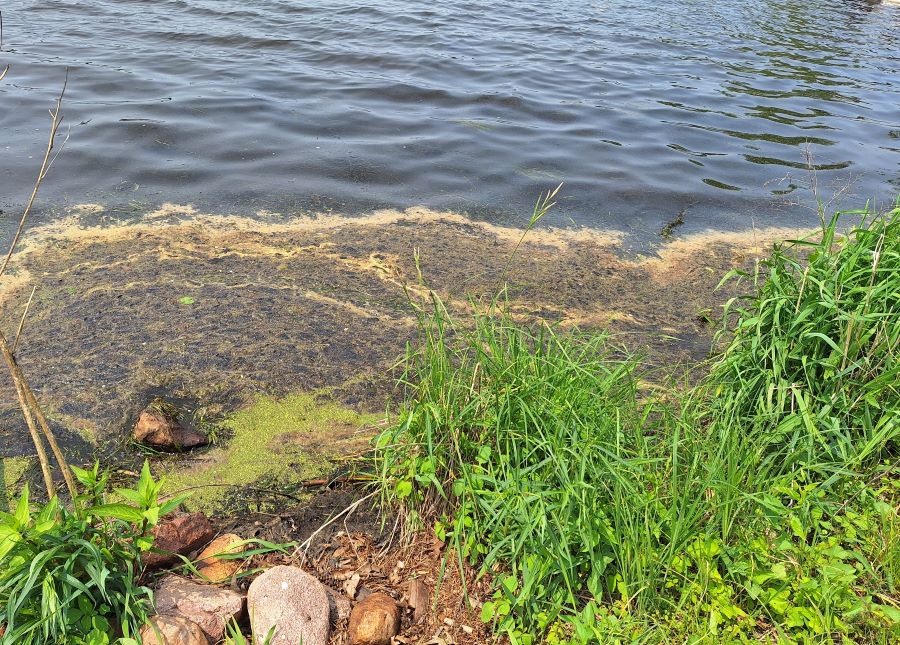
First Test
Hasdal said they found a company called Moleaer that treats wastewater and turns it into potable water in countries all over the world. The board thought if Moleaer could do that with wastewater, the technology could also help clean up the lakes.
A large unit from Moleaer was installed on the shoreline in the marina on Lake Arrowhead. After 76-days, the amount of muck on the bottom of the marina reduced by a foot. Hasdal stated, “The clarity of the water went from eight inches to three feet.”
Nanobubble Technology
The process to clear the water in lakes uses Moleaer nanobubble technology to oxygenate the water at every level. Part of the reason that muck accumulates at the sediment level is due to a lack of oxygen. Hasdal explained how the process works. “It will change the sediment from basically anaerobic to aerobic. Allowing the good bacteria to overtake the bad bacteria.”
Anaerobic conditions, which means without oxygen, can lead to an overgrowth of algae. By shifting conditions to aerobic near the sediment layer, this addition of oxygen stimulates and accelerates the good bacteria to break down organic muck more efficiently.
The nanobubbles are 2,500 times smaller than a grain of salt. Because they are so tiny, they remain suspended at every layer in the water column. They don’t rise to the surface, instead delivering oxygen and other gases to mitigate contaminants without using chemicals. This improves water quality by helping to reduce pathogens, algae blooms, and even unpleasant odors.

Wisconsin Department of Natural Resources
Right now, the Wisconsin DNR is allowing the Tri-Lakes Management District to do a 10 percent test on Lake Camelot. They want to be sure having these units inject nanobubbles into the lake isn’t going to hurt the lake or its inhabitants. Once the DNR is satisfied by the data, the units will eventually be installed on all three lakes.
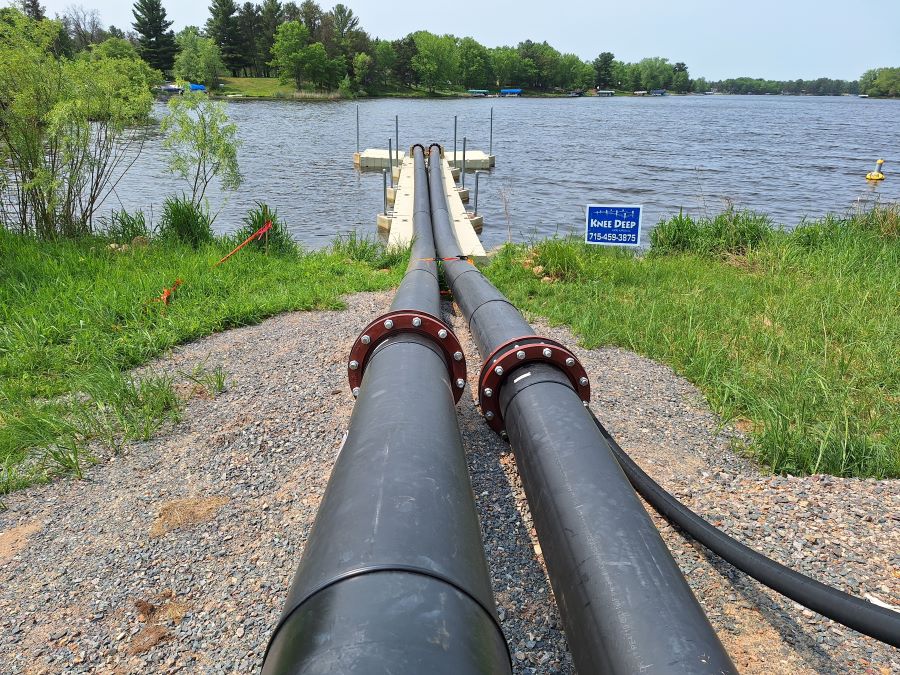
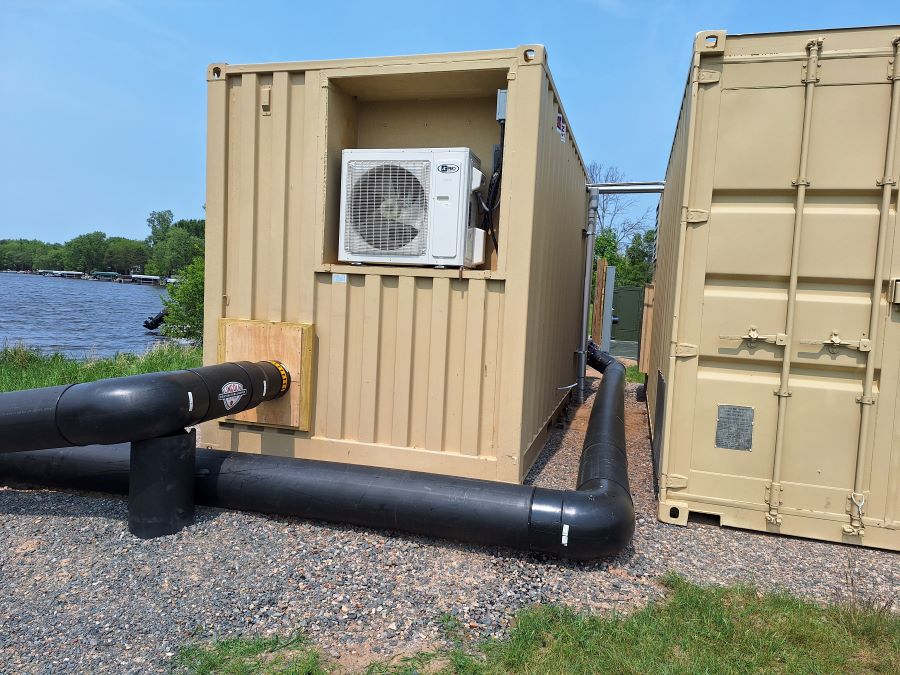
Looking Ahead
Hasdall said there are many people looking on to see how this experiment works for the Tri-Lakes Region. “We’re basically spearheading this for the state of Wisconsin. We have about 200 lake districts in the state and I’ve got 30 of them in the wings waiting to see the results here so they can start pushing it as well.”
Once the Moleaer equipment is compliant with state and county guidelines, the next phase of testing will begin. There are buoys in the water around the area to be tested. They’ve been collecting baseline data to measure against the data collected once the machines start running.
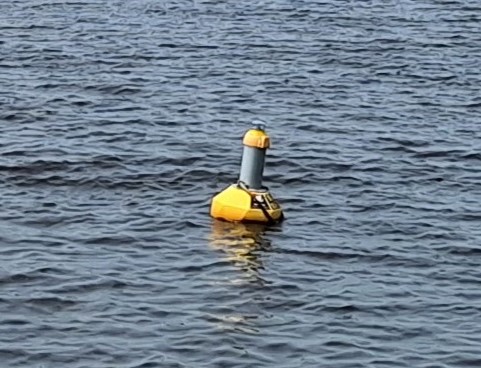
Carl Hasdal said he thinks it won’t be long before they start seeing positive results. “You’re going to see a lot of this happening over the next couple of years ‘cause it’s a solution, it’s not a bandaid. And this will help us restore the lakes back to what they should be.” It’s possible that algae blooms in Wisconsin lakes will be less of a problem for summer fun in the near future.
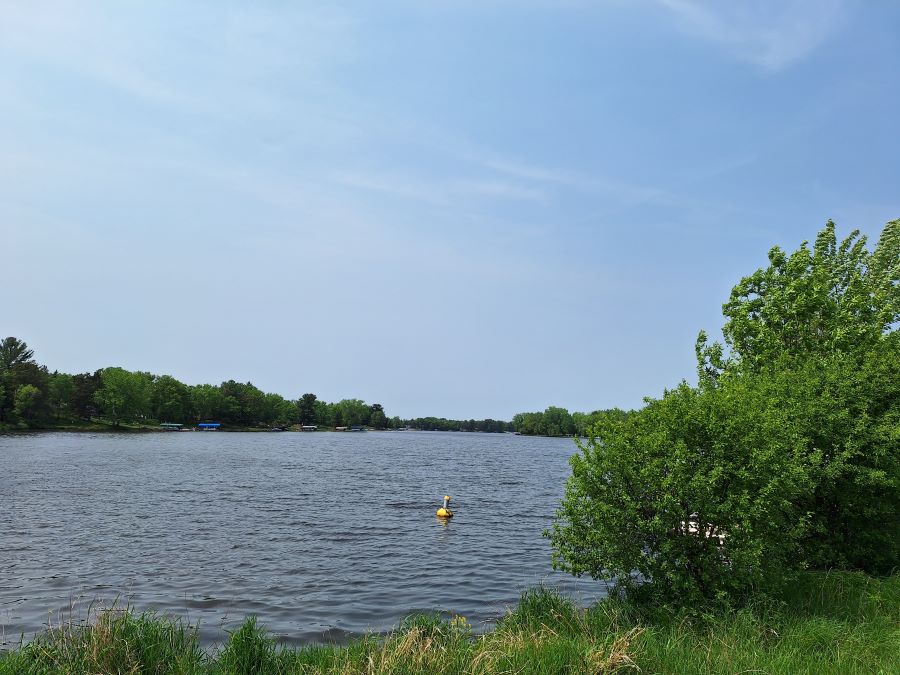

Melissa Kaye is the News Director for WFHR and WIRI in Wisconsin Rapids. Email her at [email protected].
Want More Local News?
Civic Media
Civic Media Inc.
The Civic Media App
Put us in your pocket.